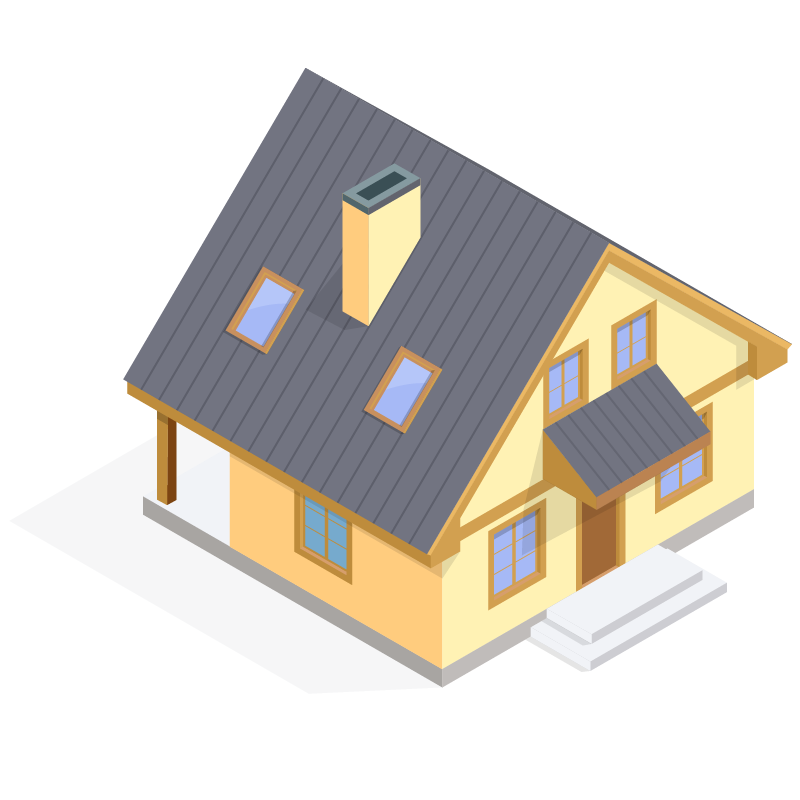You know the home you want.
We make it happen.
Whether you are looking to purchase a home or upgrade the one you have, it all starts with choosing the right lender and the right home loan.
Welcome to Non-QM loans! These home loans offer non-traditional income requirements, making them ideal for borrowers who are entrepreneurs, gig workers, self-employed, or who are real estate investors.


You don’t need a traditional W-2 to qualify.
Some Non-QM loan types offer up to $4mil in financing.
The property does not have to be your primary residence.
Non-QM loans allow for a higher amount of debt than other loan types.
Follow some simple steps to prepare to apply for a Non-QM loan online today
Generally, you’ll need a minimum credit score of 660, a debt-to-income ratio of 45%-55%, and proof of income.

Pre-approval from your lender can give you security while you shop and give you an estimate of your mortgage amount.

Gather your needed documents like identification, income information like asset information, 1099s, or bank statements, and credit and debt reports to finalize your application.
Bank Statement and P&L loans
Our DSCR loan
Use your assets
ITIN & Foreign National
Non-QM loans primarily benefit self-employed individuals, real estate investors, and those with unique income streams or credit histories that don't align with Conventional mortgage requirements. They are also suitable for borrowers with significant assets but fluctuating income, or those seeking financing for non-traditional properties.
Yes, it is often possible to get a Non-QM loan even with a recent bankruptcy or foreclosure. Unlike traditional mortgages that require several years to pass, Non-QM lenders are typically more flexible and may consider borrowers with shorter waiting periods. They evaluate the overall financial picture, including assets and income stability, rather than solely focusing on past credit events.
The down payment for a Non-QM loan can vary significantly depending on the lender, the borrower's financial profile, and the specific loan program. While some programs might require as little as 10-15% down, others could ask for 20% or more, especially for investment properties or higher-risk scenarios. It's best to consult with a lender to understand the specific down payment requirements for your situation.
Generally, Non-QM loans tend to have slightly higher interest rates and fees compared to traditional, conforming mortgages. This is because they carry a bit more risk for lenders due to their non-traditional underwriting criteria. However, the exact cost difference depends on the borrower's creditworthiness, loan-to-value ratio, and the specific Non-QM product chosen.
Non-QM loans can come with both fixed and adjustable interest rates, similar to traditional mortgages. Borrowers can choose a fixed-rate option for predictable monthly payments throughout the loan term, or an Adjustable-Rate mortgage (ARM) which typically offers a lower initial rate that can change over time. The choice depends on the borrower's financial strategy and risk tolerance.
Prepayment penalties can sometimes be a feature of Non-QM loans, though they are not universal. These penalties are fees charged if a borrower pays off a significant portion or the entire loan balance early. It's crucial for borrowers to carefully review the loan terms and discuss any potential prepayment penalties with their lender before committing to a Non-QM mortgage.
Absolutely! Non-QM loans are a popular choice for financing investment properties and second homes, especially for real estate investors. Many Non-QM programs are specifically designed to cater to investors, offering flexible income verification methods like bank statement loans or debt service coverage ratio (DSCR) loans. This makes it easier for investors to qualify even if they don't have traditional W-2 income.
The closing timeline for a Non-QM loan can vary, but it often takes a similar amount of time to a traditional mortgage, typically between 30 to 60 days. The process can sometimes be quicker if the borrower has all necessary documentation readily available and the lender is efficient. However, due to the specialized underwriting, it might occasionally take a bit longer than a straightforward conventional loan.
While 30-year terms are common, some Non-QM lenders may offer loan terms longer than 30 years, such as 40-year mortgages. These extended terms can result in lower monthly payments, making homeownership more accessible or improving cash flow for investors. However, a longer term also means paying more interest over the life of the loan.
Whether you are looking to purchase a home or upgrade the one you have, it all starts with choosing the right lender and the right home loan.

Use our mortgage and refinance calculators to help you plan your future today

With more than 404,700 reviews online, you don't have to just take our word for it. Form first-time homebuyers, to veterans, to seasoned investors, NAF is commited to serving our customers on whatever homebuying path they choose.
